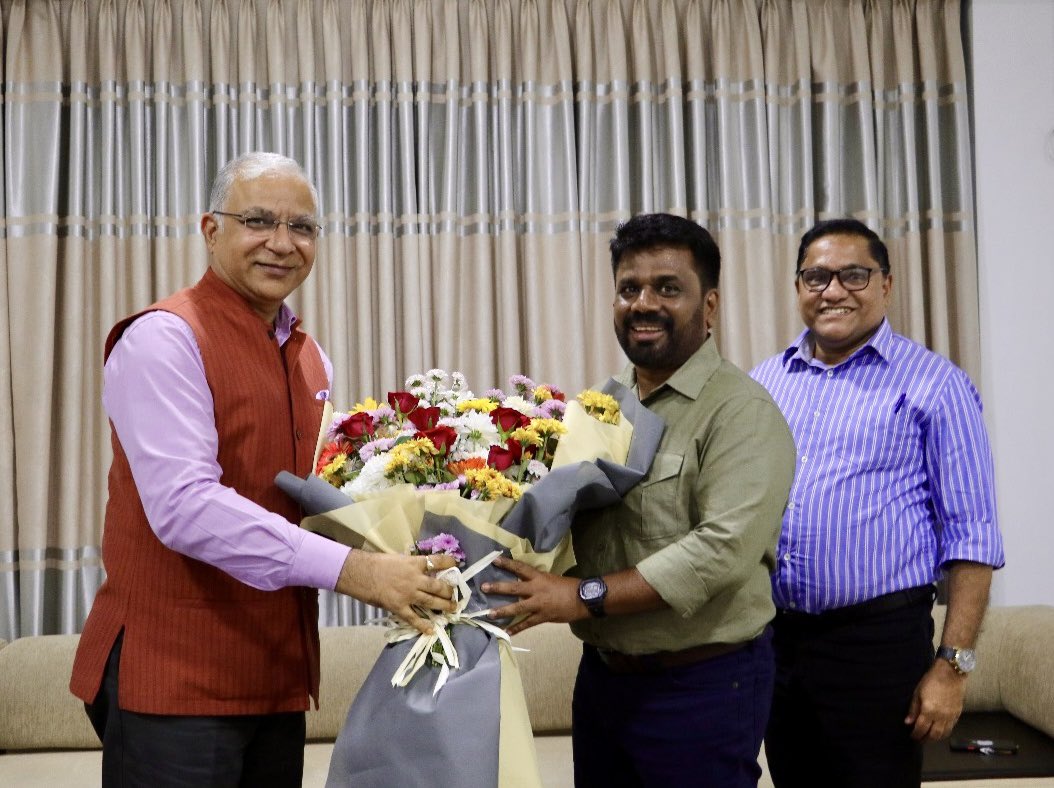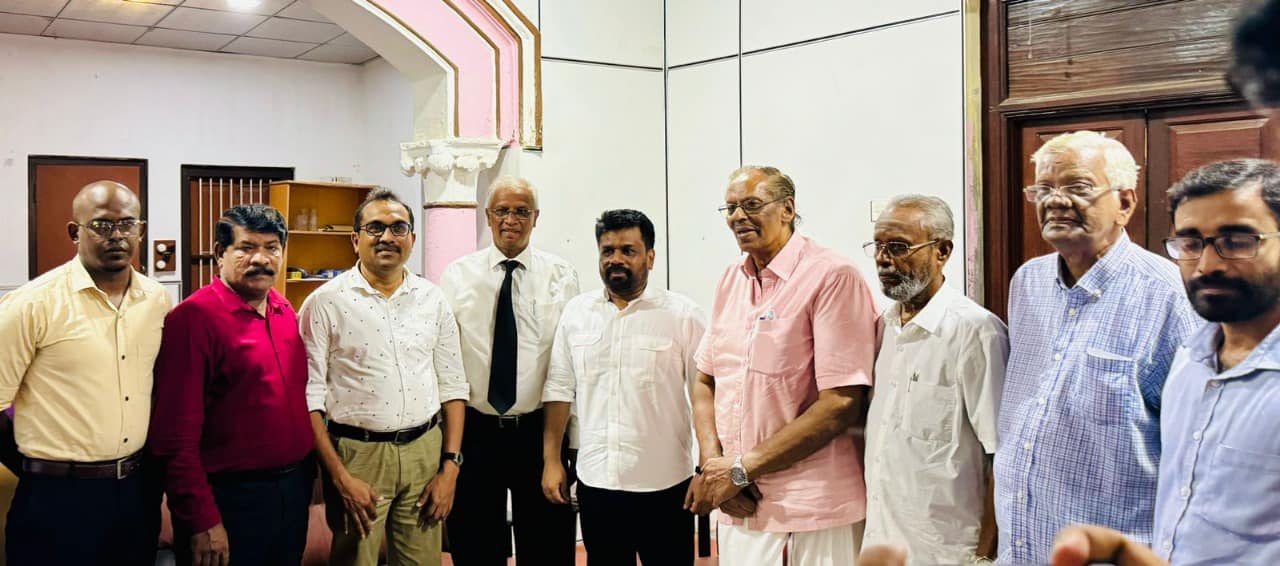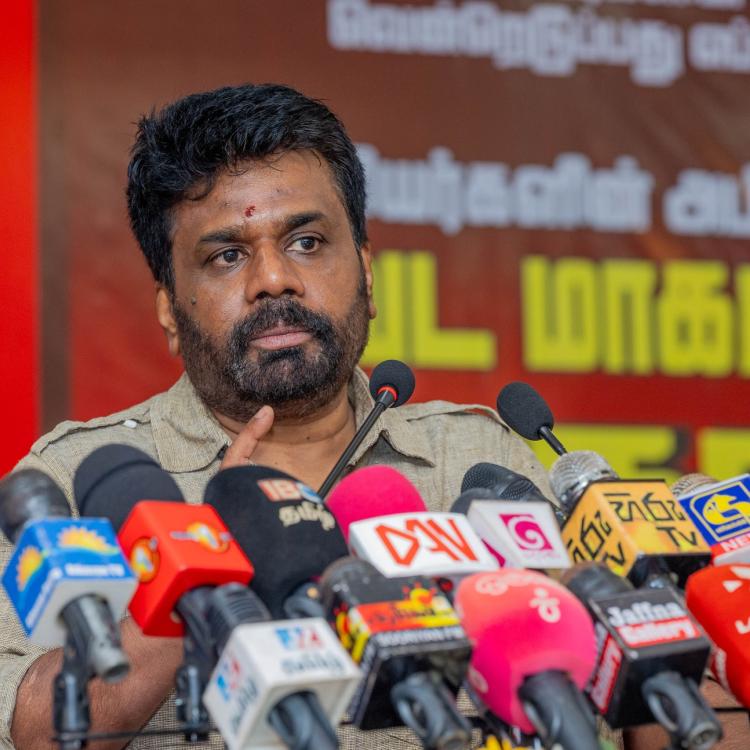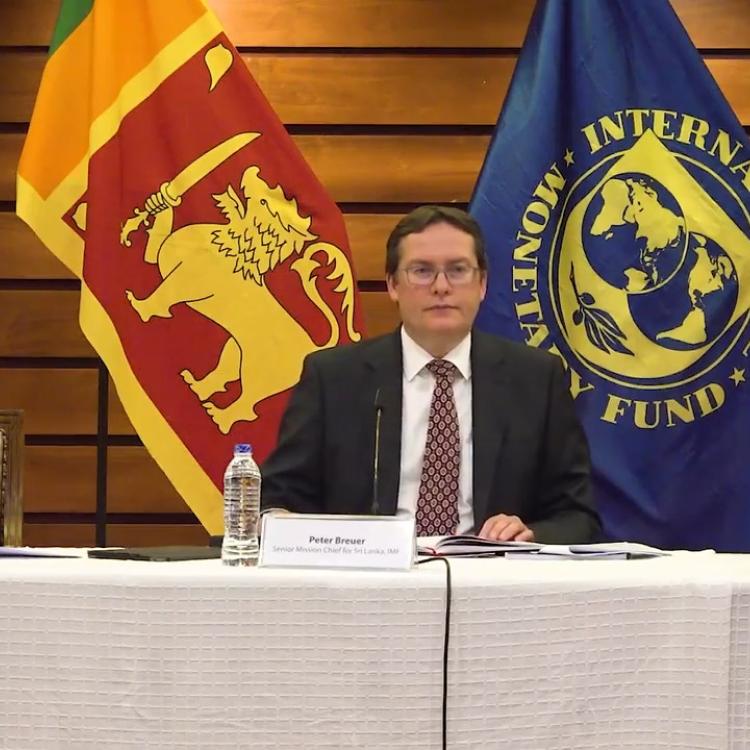
Following his victory at Sri Lanka’s presidential election, leader of the Janatha Vimukthi Peramuna (JVP) Anura Kumara Dissanayake met with India’s High Commissoner for Sri Lanka, Santosh Jha.
During this meeting the Indian High Commissioner congratulated Dissanayake on his victory and maintained India’s commitment to “further deepen ties for the prosperity of the people our two countries”.
HC @santjha called on President-elect @anuradisanayake. Conveyed greetings from India’s leadership and congratulated him on winning the people’s mandate. as ’s civilisational twin is committed to further deepen ties for the prosperity of the people of our two countries. pic.twitter.com/l5qUxmAcA1
— India in Sri Lanka (@IndiainSL) September 22, 2024
India’s Prime Minister, Narendra Modi, also issued his congratulations to Dissanayake tweeting:
Congratulations @anuradisanayake, on your victory in the Sri Lankan Presidential elections. Sri Lanka holds a special place in India's Neighbourhood First Policy and Vision SAGAR. I look forward to working closely with you to further strengthen our multifaceted cooperation for…
— Narendra Modi (@narendramodi) September 22, 2024
Prior to the elections, Dissanayake was invited to Delhi where he met with India’s External Affairs Minister, Dr. S. Jaishankar, to discuss bilateral relations between India and Sri Lanka.
The meeting has been seen as a sharp departure from the JVP’s prior militant anti-Indian position. The JVP has a storied history in Sri Lanka having staged two insurrections against the state in the early 1970s and the late 1980s. The latter of these was chiefly in response to the Indo-Lanka accord and the threat of devolved powers to Tamils. Then leader Rohana Wijeweera framed Tamil demands for self-determination as in-hoc with US imperialist interests in his 1986 book “Solutions for Tamil Eelam Struggle”.
Read more here: Anti-India or just Anti-Tamil?
Despite India’s efforts to push implementation of the 13th Amendment, which was a result of the 1987 Indo-Lanka Accord, the JVP has maintained staunch opposition towards greater devolution for Tamils.
“As a political party we strongly opposed the Indo-Lanka Accord decades ago, and dedicated our initiatives to safeguarding Sri Lanka’s sovereignty, at the cost of many lives," said Vijitha Herath of the JVP earlier this year. Heath has also stressed the party’s staunch opposition to federalism and the role the party played in demerging the Northern and Eastern Tamil provinces.
During the 51st UN Human Rights Council (UNHRC) session in 2022, India’s envoy stressed the need for Sri Lanka to implement the 13th Amendment telling the Council;
"India believes that it is in Sri Lanka’s own interest that the expectations of Tamils in Sri Lanka for equality, justice, peace and dignity, within a united Sri Lanka, are fulfilled […] This applies equally to the commitments made by the Sri Lankan Government on meaningful devolution, including through the 13th Amendment to the Sri Lankan constitution".

In meeting with members of the Ilankai Tamil Arasu Katchi (ITAK) Dissanayake claimed that he would support the implementation of the 13th Amendment. However, this pledge was in stark contrast to his earlier statements in Jaffna where he told the audience that he was not there to barter the 13th Amendment in exchange for Tamil votes.


